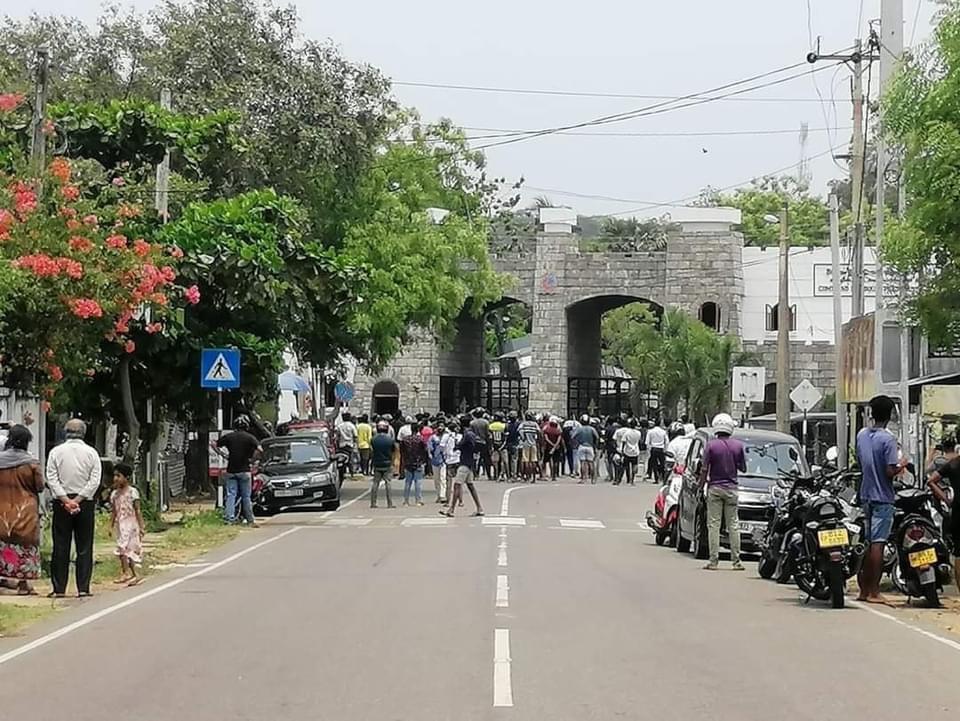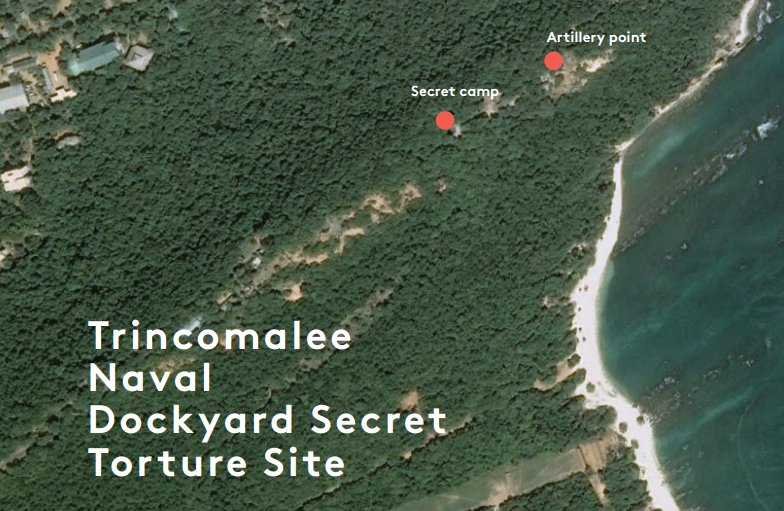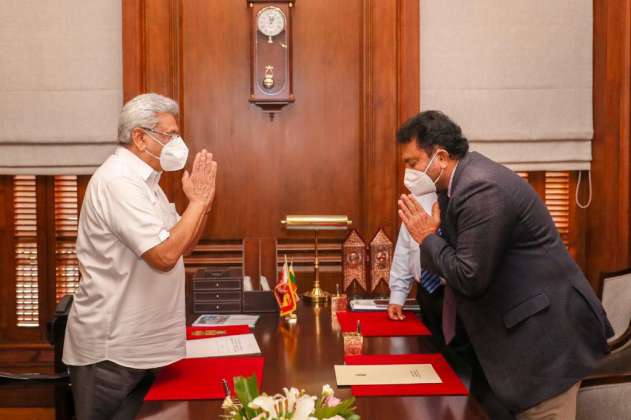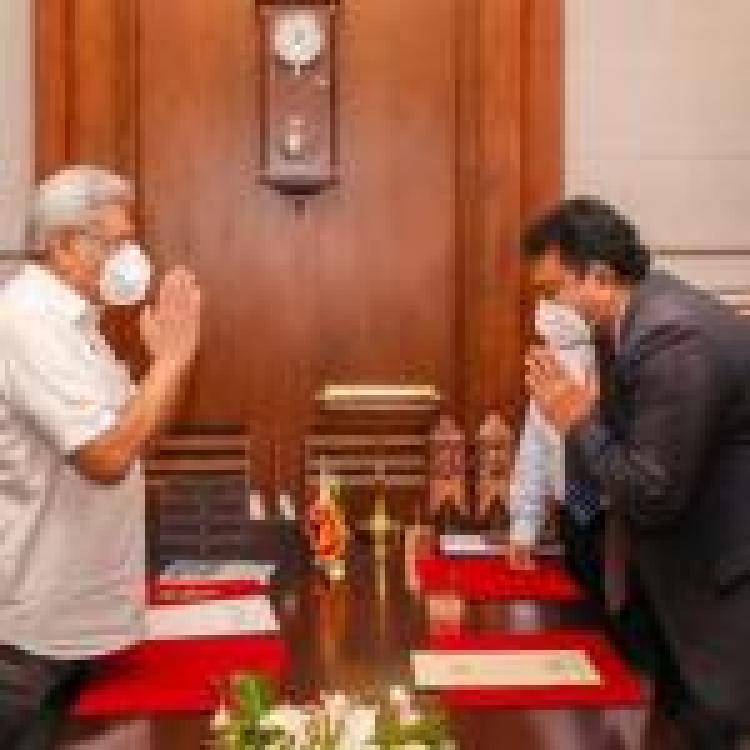
Protests have erupted outside a Sri Lankan navy base in Trincomalee this morning, after reports that Mahinda Rajapaksa was evacuated from his official residence in Colombo to the heavily occupied Tamil North-East by the military.
The besieged former Sri Lankan prime minister who handed in his resignation just yesterday, faced a night of angry protests outside his residence at Temple Trees in the Southern capital. Amidst repeated rounds of tear gas and warning shots being fired by the security forces, Rajapaksa was reportedly evacuated this morning.
“After a pre-dawn operation, the former PM and his family were evacuated to safety by the army,” a top security official told AFP. “At least 10 petrol bombs were thrown into the compound.”
Read more: Violence outside Sri Lankan Prime Minister's residence
As news that Rajapaksa had arrived in Trincomalee spread, an angry crowd gathered outside the naval base where he is reportedly staying.
Hundreds of people had arrived at the gates of the base, demanding that Rajapaksa, who is accused of war crimes and genocide, be imprisoned.
The naval base in Trincomalee is infamous. Not only is it the largest naval base of the Sri Lankan Navy and a major shipyard covering 900 acres of land, but it is also a well-known torture site. Amongst those who have been tortured, abducted or killed there are 11 victims who were abducted in Colombo between August 25, 2008 and February 2009 and held for ransom at navy bases in Colombo and Trincomalee, before being presumably murdered.

The case of the abduction and forced disappearance of 11 people, who were predominantly Tamil, garnered international attention. However, no one has been held accountable for the abductions.
Instead, the former Sri Lankan Navy Commander, Wasantha Karannagoda who was investigated as a suspect in the case was appointed as the new Governor of the North-Western in December 2021.



